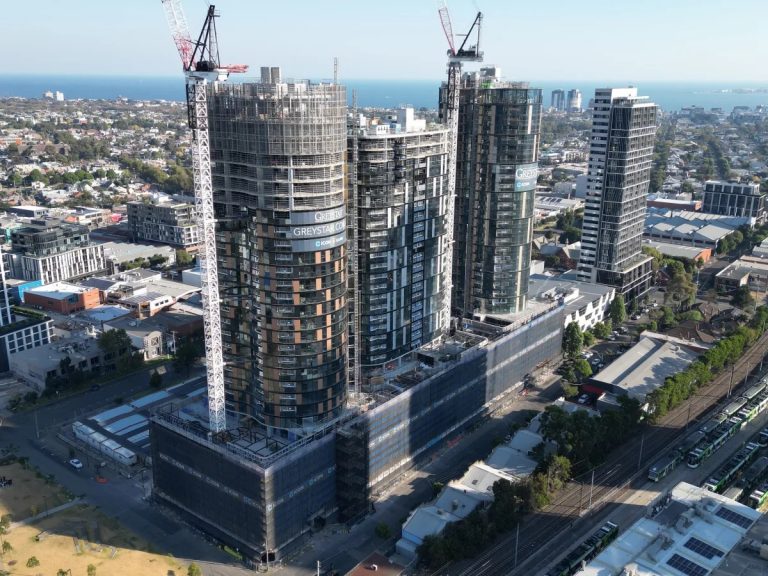What do I need to know about commercial property loans?

Commercial property loans are similar to residential loans but there are some significant differences including loan terms, lease durations, fees and costs.
Inexperienced investors should also ensure they have a top-notch support network, including legal advisers.
How are commercial property loans different to residential loans?

Compared to residential loans, commercial property loans are a whole new ball game. Picture: Getty
“The vast majority of people we speak to, particularly business owners and investors, understand how a residential loan works – and commercial loans can actually mimic home loan,” Grow Capital managing director, Nick Wormald, explained.
“But then again, it can be very expensive short term and a lot more painful [than a residential home loan].”
Here’s why.
Shorter loan terms
Investors should expect a much shorter loan term for a commercial property, compared to a residential one, with Mr Wormald explaining that five to 15 years was a pretty typical term for commercial loans.
Mortgage Choice commercial broker Alston Soff concurred, explaining most banks only offered a 15-year commercial loan term, with 25 or 30-year terms – which are often enjoyed in a residential loan – being rare.
“There are some lenders who are still doing longer terms …but it’s not a given that you’ll get a 30-year loan term so you need to be careful about this point,” Mr Soff said.
Mr Soff added that 30-year loan terms were generally available only for standard commercial property, but this definition differed between lenders.
“Lenders like ING and Suncorp tend to cover all properties and the longer loan terms, but the major banks do have certain stipulations,” he said.
Higher loan deposits
Mr Soff said his first question to keen investors was always, “Are you prepared to put in a 30% deposit?”
“There’s no Lenders Mortgage Insurance so you can’t borrow 90% or 95%,” he said.
“The 70% is based on the commercial property purchase price and doesn’t include GST, if it’s applicable, or your statutory charges, like transfer of land.”
Mr Soff explained that while some banks will accept an 80% deposit, there were strings attached to such terms.
What about fees and other costs?

Commercial investors also need to consider bank fees and valuation costs. Picture: Getty
“Bank fees are a big thing that most clients don’t expect to pay,” Mr Soff said.
“This is because on residential loans, there’s almost always no fees to be paid with 90% of the lenders, as they’ve got some package or scheme in place, or some special offer going.
“But with commercial loans, there is usually a loan application fee or a setup fee for the bank.”
Valuations
Commercial investors will need to pay lenders for a property valuation, according to Mr Soff.
“Valuations are an expensive task and the payment varies,” he said.
“It also depends on your timeframe.
“For example, you might have to pay $2,500 just because you want the valuation done in 10 days time.”
Mr Wormald concurred that commercial valuations were a lot more complicated than residential ones.
“Commercial properties are a little bit more complex than a home,” he said.
“There’s a whole host of different types of commercial loans versus home loans and you’ve got different business structures and different asset types.
“The process is also a lot more manual as there’s a lot more paperwork involved.”
Who should I have on my commercial loans team?
Even experienced commercial property investors need a team of experts to help them navigate a range of issues related to getting a commercial loan.
The experts who can help to support your business when you’re trying to obtain a commercial loan should include an accountant, a lawyer with specific commercial legal experienceand a finance broker.
All these people should offer commercial advice and experience specific to your particular investment such as industrial, retail or office space.
Legal advice
Mr Wormald advised commercial investors to check their legal counsel had commercial law experience as solicitors and conveyancers in particular didn’t always have this knowledge.
“You’ll want a legal firm that has a broader spectrum of legal skills because there are lots of different things that need to be checked, like lease agreements and weighted average lease expiry [WALE],” he said.
Mr Soff concurred, explaining investors should double-check that their legal team understands what they’re doing and are able to actually review contracts.
“Usually, most solicitors would specialise in all types of property law, but not all conveyancers do commercial property so find out if they do,” he said.
Accountant

Make sure you have an accountant, legal counsel and financial broker on your support network group. Picture: Getty
“You definitely need a really good accountant that you trust and who can give you business and tax advice on your transaction,” Mr Wormald explained.
“It’s imperative to have the right accountant to provide advice around this vehicle, or borrowing entity, and all of the tax advice that goes around it.”
Mr Soff added that accountants could help investors understand their different obligations.
“For example, are you going to just buy the commercial property in your individual name and have it as a personal property investment or is it going to be put into an entity structure?” he said.
Financial broker
According to Mr Wormald, one of the first questions commercial investors should ask financial brokers is how many transactions they’ve completed in the last 12 months.
“A good finance broker should have plenty of experience doing commercial transactions,” he said.
“I would say at least one transaction a month over a couple of years is a good number.”
Mr Wormald said brokers should also help to present the five Cs of credit – character, capacity, capital, collateral and conditions – to the lender in the correct way.
Also, while 90% of the time, lenders will pay for commercial finance brokers’ assistance – just as they do with residential mortgages – they usually require a lot more fees and charges, he explained.
“Commercial brokers do usually charge a fee because there’s more work that goes into what they do, compared to residential mortgages,” he said.







